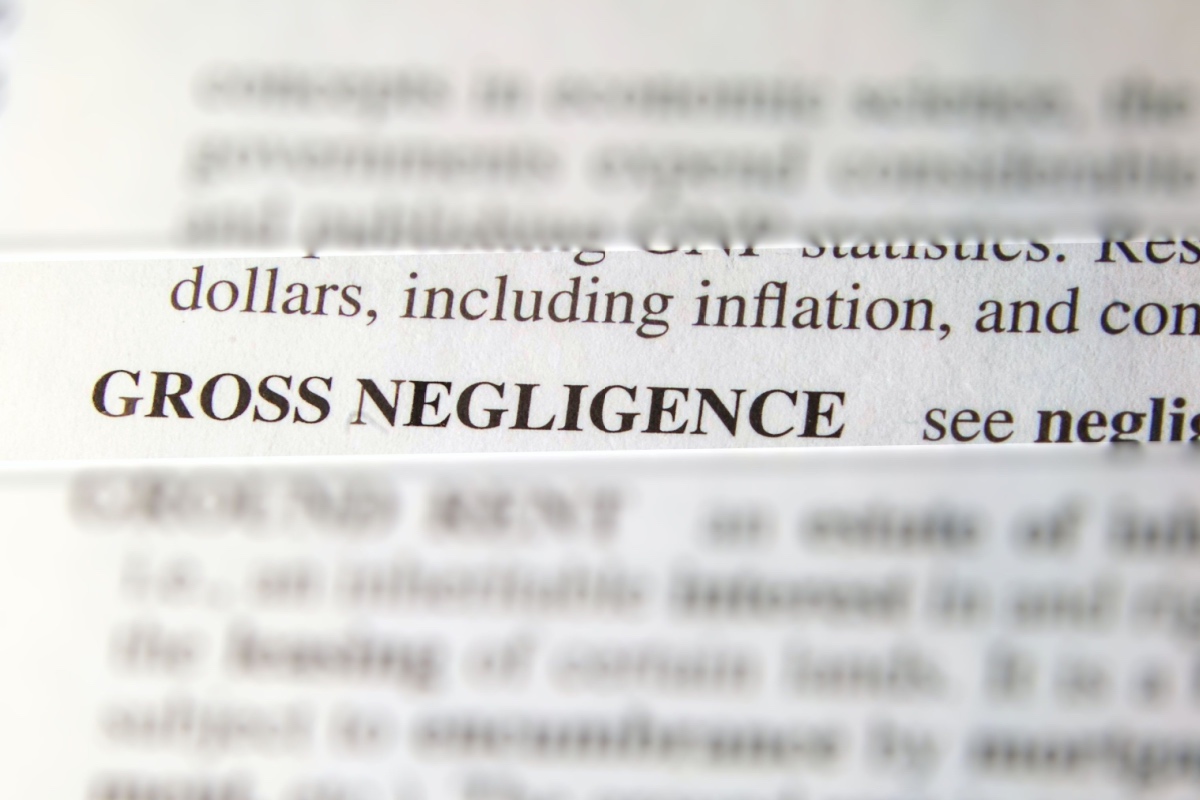
Negligence is the primary question personal injury claims ask in West Virginia. Was the defendant negligent, and did this cause the plaintiff’s injuries? To have grounds to file a personal injury lawsuit, the injured party must have proof of the defendant’s fault. There is ordinary negligence and gross negligence. From a legal standpoint, the two have different meanings and consequences. A defendant could face more severe penalties for gross negligence. If you were recently injured in an accident in West Virginia, find out which type of negligence may apply to your case, as well as how this might affect your outcome, with help from a West Virginia injury lawyer.
Ordinary negligence is the failure to meet the standard of care. It can refer to a careless or intentional breach of someone’s duties of care. If someone else in the same position as the at-fault party would have done something differently and prevented the accident, the defendant could be guilty of negligence. Negligence does not refer to a criminal act. Instead, it is a civil tort in which someone does not exercise a reasonable degree of care. Proving ordinary negligence requires evidence of four main elements in West Virginia.
Gross negligence is a step beyond ordinary negligence in terms of torts. It is a more serious type of wrongdoing that describes extreme carelessness or a wanton disregard for the safety of others. It goes beyond simply breaching a duty of care and into the territory of recklessness or willful behavior. Gross negligence can describe doing something (or failing to do something) despite knowing that the conduct is likely to cause foreseeable harm to the health, safety or wellbeing of others. Gross negligence is a severe tort that can have major consequences for a defendant.
Ordinary negligence is the failure to keep someone else safe from an incidental situation – often unintentionally or carelessly. Examples of ordinary negligence include failing to put up a “No Diving” sign at a shallow pool, forgetting to inspect a property for slip and fall hazards, a pilot deciding to fly in bad weather, and a driver running a stop sign. Gross negligence describes reckless or intentional misconduct. Gross negligence can take many forms in West Virginia.
The major difference between ordinary and gross negligence is the intentions of the defendant, as well as the severity of the negative consequences the victim suffers. Negligence is a complicated legal doctrine that can be difficult to understand without a lawyer’s assistance. If you are curious whether you have been the victim of ordinary or gross negligence, consult with a West Virginia accident lawyer about your specific case.
Determining whether or not you have been the victim of gross negligence can be important for your personal injury claim in West Virginia. The civil courts will handle each type of case differently. If someone committed an act or omission that was grossly negligent, malicious, fraudulent, reckless or wanton, that person may owe you more money in compensation for your losses. First, gross negligence may have given you even more severe damages and losses than ordinary negligence. Second, the judge or jury on your case may award punitive, or exemplary, damages to punish the defendant for his or her actions.
Punitive damages are something a judge may give you on top of compensatory damages. Where compensatory damages serve to reimburse you for your losses, punitive damages serve to penalize the defendant. The goal of a punitive damage award is to punish the defendant for creating the aggravating circumstances that significantly harmed the plaintiff. They also aim to prevent the wrongdoer – and others in the community – from committing the same offense in the future. The court has full discretion over how much to award a plaintiff in punitive damages in West Virginia, up to the state’s cap. You cannot recover more than $500,000 or four times the amount of your compensatory damages (whichever is greater) in punitive damages.
To receive punitive damages, you or your attorney must use clear and convincing evidence to establish that the defendant was grossly negligent, acted with a conscious reckless and outrageous indifference to the safety of others, or acted with malice toward you. The court will examine the evidence presented and determine if it is enough to qualify you for punitive damages. If so, the courts will award you an amount – up to the state’s maximum – that is reasonable based on the defendant’s actions and your related losses. Note that you cannot receive punitive damages without also recovering compensatory damages.
If you have serious injuries from a recent accident in West Virginia, talk to an attorney about your case. Should the defendant’s actions qualify as gross negligence, not just ordinary negligence, you could be eligible for a higher financial award. The lawyers at Manchin Injury Law Group can help you with an ordinary negligence or gross negligence case. Contact us today for a free case evaluation near you.

Attorney Timothy Manchin established the Manchin Injury Law Group in 2011 after his law partner of more than 25 years became a West Virginia circuit court judge. His focus is on helping individual clients and entire families victimized by negligent acts.
We offer a free initial consultation at our office in the Manchin Professional Building — our home since 1983 — conveniently located in Fairmont.
If you are unable to visit our firm, we can come to your home or hospital room.
Fill out the form below to get in touch!